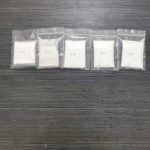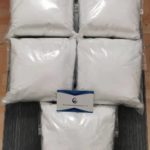Many people do not understand the adverse consequences of tetracaine hcl powder effect in the process of injection. Some things will happen after use. The following tetracaine hcl powder API manufacturers will tell you about the injection of tetracaine hcl powder. Then there will be those bad effects.
tetracaine hcl powder effect for injection is white loose lumps or powder. The main components are tetracaine hcl powder effect, and the excipients: sodium hydroxide and water for injection. Let’s take a look at the expert’s introduction of how to use it and its adverse reactions.
Tetracaine hcl powder effect for injection is mainly used for epidural block, subarachnoid block, nerve conduction block, mucosal surface anesthesia, the specific usage and dosage are:
Tetracaine hcl powder effect for injection is a powder injection, which needs to be dissolved in sodium chloride injection or sterile water for injection. The concentration and dosage of the liquid medicine are as follows according to the purpose:
Epidural anesthesia: the usual concentration is 0.15~0.3% solution, combined with lidocaine hcl powder, the maximum concentration is 0.3%, the usual dose is 40~50mg, the maximum amount is 80mg.
Subarachnoid block: commonly used its mixed solution (1% tetracaine hcl powder 1ml mixed with 10% glucose injection 1ml, 3% ephedrine hydrochloride 1ml), the usual dose is 10mg, 15mg is the limit, 20mg is the extreme the amount.
Nerve conduction block: the usual concentration is 0.1%~0.2%, the usual dose is 40~50mg, the maximum amount is 100mg.
Mucosal surface Tetracaine hcl powder effect: the usual concentration is 1%, 1% isotonic solution is used in ophthalmology, and 1% to 2% solution is used in otolaryngology, and the limit is 40mg.
Adverse Reactions of Tetracaine hcl powder effect for Injection
1. Toxic reaction: The potency of this product is 10 times that of procaine powder, the toxicity is also 10 times higher than that of procaine powder, and the incidence of toxic reactions is also higher than that of procaine powder, often due to large doses, fast absorption or improper operation Caused by mistaken injection into the blood vessel to make the blood drug concentration too high. The symptoms of overdose poisoning are: dizziness, dizziness, subsequent chills, tremors, panic, convulsions and coma, respiratory failure and blood pressure drop, and prompt rescue.
2. Allergic reaction: Sudden death can be caused to allergic patients, even if it is surface anesthesia, attention should be paid to it.
3. Can produce skin rash or urticaria, edema of the face, mouth, or (and) glossopharyngeal area.
 Lidocaine powder, phenacetin powder and Tetracaine powder bought by Germany customer–Aug 17,2022
Lidocaine powder, phenacetin powder and Tetracaine powder bought by Germany customer–Aug 17,2022 Lidocaine powder,Procaine powder,phenacetin powder and Tetracaine powder bought by Spainish customer on Mar 10,2022
Lidocaine powder,Procaine powder,phenacetin powder and Tetracaine powder bought by Spainish customer on Mar 10,2022 Lidocaine powder, phenacetin powder and Tetracaine powder bought by Germany customer–Aug 17,2022
Lidocaine powder, phenacetin powder and Tetracaine powder bought by Germany customer–Aug 17,2022 Lidocaine powder,Procaine powder,phenacetin powder and Tetracaine powder bought by Spainish customer on Mar 10,2022
Lidocaine powder,Procaine powder,phenacetin powder and Tetracaine powder bought by Spainish customer on Mar 10,2022











